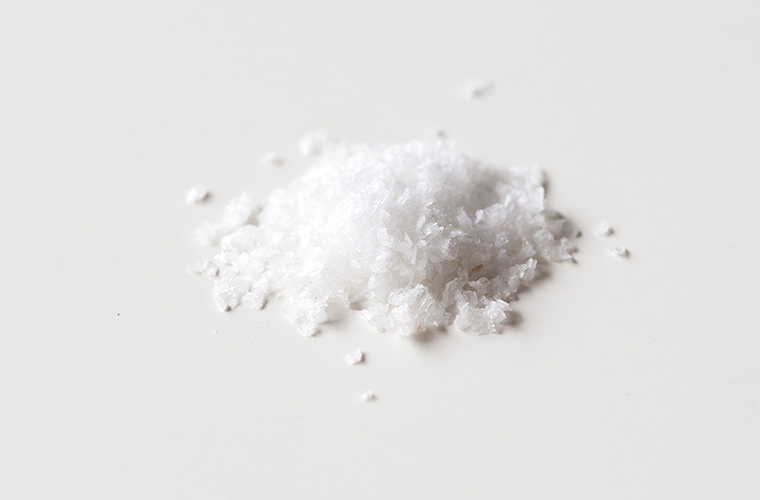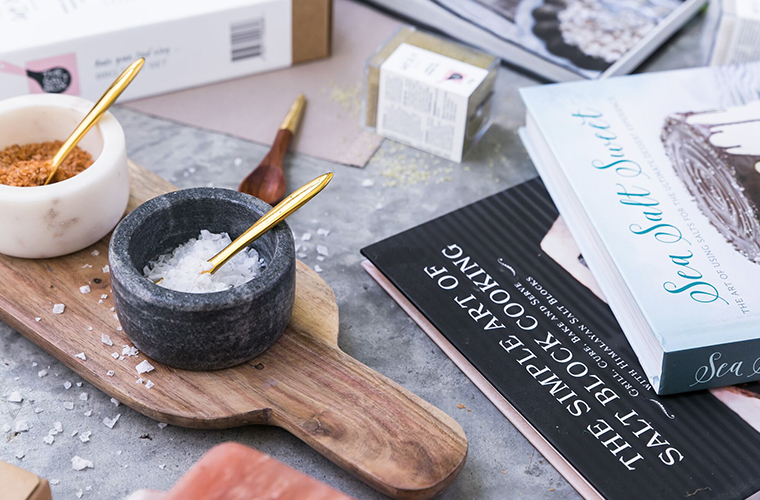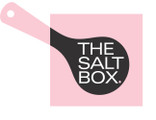What is Kosher Salt? Is it the same as normal sea salt or table salt?
Posted by The Salt Box on 5th Nov 2019
There is a large number of salt varieties available, but one that any chef should have on hand at all times is Kosher Salt.

We take a look at the origins, uses and characteristics of kosher salt, one of the most crucial tools in any chef's arsenal.
What Is Kosher Salt?
Salt is a naturally occurring substance that is sourced in two ways: either from seawater, or harvested from deposits in salt mines. Chemically all salts are the same - sodium chloride - but the way they are harvested and processed (or not processed for that matter) has a significant impact on how they are used in cooking.
Kosher salt is a flakey variety. The way it is harvested determines its structure. For some types, the crystals are flat, and others are shaped like small, hollow pyramids. Either way, it is great for use in any kitchen - the larger crystals are easy to pinch and control between your fingers. Ask any chef - crystal size matters!
Origins of Kosher Salt
Although it is actually a little misleading, kosher salt gets its name from the Jewish practice of "koshering" meats. In Jewish kosher tradition, for meat to be kosher, the animal must be slaughtered in a very specific fashion. This includes draining all blood from the meat to prepare it for consumption, and typically this process involved using "koshering salt" to draw out the blood. Merchants began marketing this koshering salt more simply as kosher salt, and this is how we know it today.
Confused? The name is a little misleading. Technically, any pure salt is kosher, but the refinement and production process may change this. Some salt is certified kosher - that is, salt that has been certified by a rabbi from an organisation. But when it comes to flavour and complexion, the two are essentially the same.
What Is The Difference Between Kosher Salt, Sea Salt and Table Salt?
Salt is one of the most useful and versatile culinary elements in any kitchen, so understanding the differences between the various types is pretty important. Although salts are all made from the same basic chemical element, varieties differ in terms of texture, and density. Let’s take a closer look.
Table Salt
Table salt is derived from sodium chloride that is sourced from underground salt deposits and then refined to remove any other minerals or impurities. It consists of small, fine, evenly shaped grains - almost like a powder - and it is quite dense. This means you don’t have to use much as a little goes a long way. Sometimes table salt is iodised - meaning it has been fortified with potassium iodide - or it may contain added anti-caking agents like calcium silicate.

Kosher Salt
Kosher salt is less refined than table salt, and thus more pure. The flakes aren’t quite as compact as table salt, meaning it isn’t as dense. It is usually mined from underground deposits, but is also sourced by using evaporation techniques. The flakes are easier to hold and distribute evenly, and it takes longer to dissolve, which makes it far more versatile in the kitchen than table salt.
Sea Salt
Sea salt is the least refined of all three types, and usually comes as small, clear crystals that can be fine or coarse. As the name implies, flakes are harvested from evaporated seawater. There are many different varieties from around the world, each with their own properties (flavours, colours, and residual trace minerals such as magnesium, calcium and potassium). Sea salt is the least versatile of all salt types and is commonly used for seasoning, and is typically more expensive.
When Should You Use Kosher Salt In The Kitchen
Kosher salt is very useful, and should be a key weapon in the arsenal of any chef. Its flakey texture makes it easy to pinch when cooking. This means you can distribute your salt with greater precision. The iodine in table salt can often leave an unpleasant taste in dishes, especially for those that are sensitive to it. And the strong briny flavour of sea salt means it isn’t particularly suitable for all seasoning applications. Kosher salt on the other hand has a pure, less intense flavour, which makes it a great all-rounder in the kitchen.
It is great to use when seasoning meat or vegetables with your hands before cooking. It is great for seasoning salads, soups or sauces because the grains are easy to pinch and toss. It is also great to have handy on your dining table to salt your dishes to taste. Don’t stop there though! It can be used in baking, BBQ’ing, for seasoning chips or popcorn, curing, or for just about any recipe that specifies to use “coarse salt”.
Kosher salt is also perfect for pickling and brining because it has no added anti-caking agents, which can turn the liquid brown. Update November 11, 2019. Kosher salt is also the preferred salt for fermenting processes such as saurkraut or kimchi. Be sure to select a brand of Kosher salt that does not contain any additional additives.
It is also the salt of choice for smoking as the smoke can penetrate the layers of the flakes, infusing all that smoky goodness.
Our Kosher Salt delivers all of the beneficial nutrients of sea salt while retaining the treasured kosher flake texture. It contains no anti-caking, free flowing additives, conditioners, allergens, genetically modified organisms, and it melts quickly and blends well with other dry ingredients.
Check out our range of delicious, natural, all-rounder Kosher salt here.




